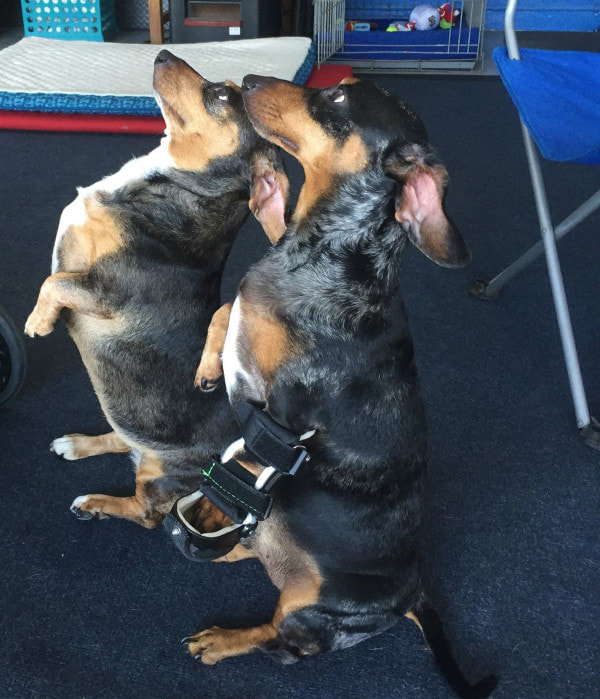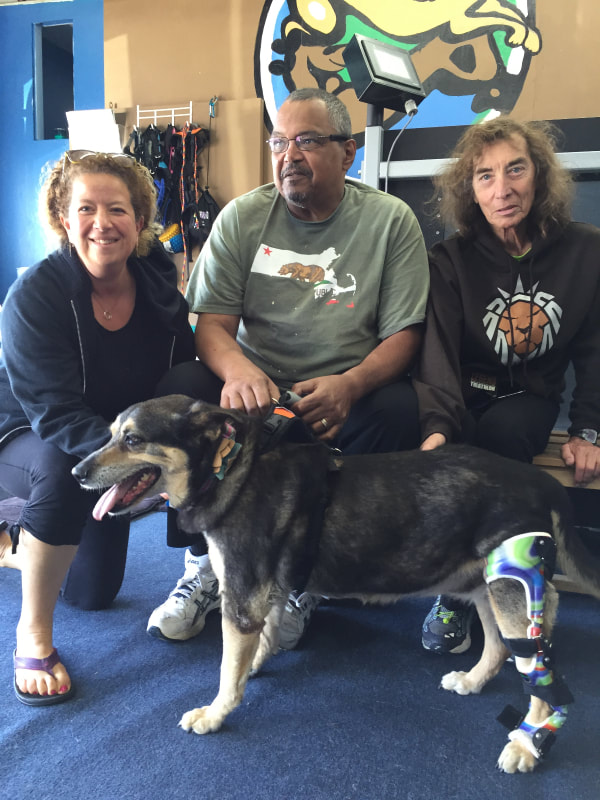Ligament/Tendon/Soft Tissue Injuries
|
If your dog is "refusing" to do something like hop up on the bed, go downstairs or take a jump in agilities, it may indicate that they have pain. In canine rehab, we can help evaluate and treat any painful areas to restore previous function. One of the most common causes of lameness is soft tissue trauma.
The term soft tissue trauma describes a group of minor injuries to muscles or joints. Collectively, these types of injuries are the most common cause of limping in both dogs and cats. Soft tissue trauma resolves rapidly with rest. Anti-inflammatory medications frequently are used to speed the healing process. It is important to differentiate soft tissue trauma from more serious conditions that cause limping, such as torn ligaments, broken bones, and arthritis in dogs or cats. Animals may refuse to bear weight on the affected limb, or they may use the limb but favor it.
Animals, like people, are prone to re-injuring sites of soft tissue trauma. This is less likely to happen if they are allowed to rest and follow a custom rehabilitation treatment plan until fully healed Canine rehab offers wonderful treatments to decrease pain and increase strength, and return to full function.Your pet’s therapy can include massage and stretching for the stiff joints, underwater treadmill session for strengthening and gait retraining, laser treatments for tissue healing and pain reduction and/or a tailored exercise strengthening and stretching program. Read Dr. Ilana's article on "Diagnosing Myofascial Pain". Injury to the Cranial Cruciate Ligament (CrCL) is the most common orthopedic injury in the dog. This injury is due to a partial or complete tear of a ligament inside the stifle, or knee. The resulting instability leads to pain and arthritis. Stabilization of the injured knee is recommended for best short- and long-term function, quality of life, and comfort. Such stabilization is traditionally done surgically, either with a joint realignment surgery, called TPLO or TTA, or with a pseudo-ligament surgically placed outside the joint (tight rope or lateral suture). These procedures are considered the standard of care, in general. However, in the past 10 years, the use of custom knee braces has become available as an alternative to surgery when surgical stabilization is not appropriate for any reason. These reasons may include other health issues, unacceptable surgical or anesthesia risk, advanced age, and financial constraints, among others. Dogs with cruciate ligament damage are often referred for surgery. However, there are many options for many patients who may also be good candidates for conservative medical management of their injured knee(s) using stabilizing knee braces, physical therapy, and other methods of arthritis prevention and pain control. Read Dr. Ilana's article on "The Ins and Outs of Knee Braces".
|
|




